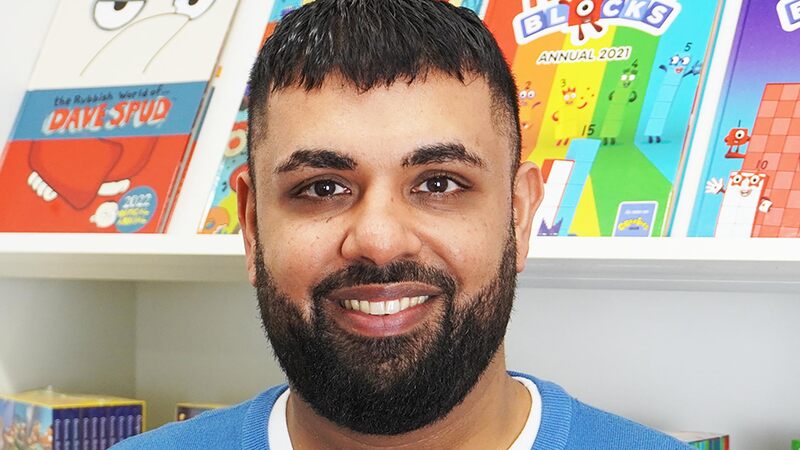You are viewing your 1 free article this month. Login to read more articles.
Litreachas agus Foillseachadh Gàidhlig ann an 2018
Aig àm nuair a tha uiread de mhì-chinnt ann mu mhaoin phoblach airson nan ealan agus cultar ann an Alba, tha an t-àrdachadh a tha air a thighinn anns an àireamh de leabhraichean Gàidhlig a tha Comhairle nan Leabhraichean a’ reic a’ dearbhadh gu bheil iarrtas ann airson leabhraichean Gàidhlig agus gu bheil an àireamh de luchdleughaidh Gàidhlig ann an Alba agus air feadh an t-saoghail a’ fàs.
Anns na trì bliadhnaichean a dh’fhalbh, tha Comhairle nan Leabhraichean, am prìomh bhuid- heann airson Litreachas Gàidhlig na h-Alba, air àrdachadh luach 14% a chlàradh anns an àireamh de leabhraichean Gàidhlig a chaidh a reic anns a’ bhùth aca ann an Glaschu agus air-loidhne. Tha 27% de na leabhraichean Gàidhlig a thathar a’ reic air-loidhne a’ dol air feadh an t-saoghail, gu dùthchannan leithid Na Stàitean Aonaichte, Canada, A’ Ghearmailt, An Eilbheis agus Innis Tìle.
Ann an 2017, chuir Comhairle nan Leabhraichean rannsachadh air leughadh airson tlachd air bhonn airson tuilleadh fiosrachaidh fhaighinn mu na cleachdaidhean leughaidh aig luchd-leughaidh na Gàidhlig. Ghabh 550 neach à Alba, an Rìoghachd Aonaichte, an Roinn Eòrpa agus an còrr den t-saoghal pàirt anns an sgrùdadh airloidhne agus chaidh agallamhan fòn agus buidhnean deasbaid a chumail airson fuasgladh fhaighinn air modhan agus feumalachdan luchd-leughaidh na Gàidhlig. Fhuaras dearbhadh gu bheil 60% de na daoine a ghabh pàirt anns an rannsachadh a’ leughadh leabhraichean Gàidhlig airson tlachd. Tha 36% dhiubh sin fileanta sa chànan agus misneachail a’ leughadh sa Ghàid- hlig. Tha 60% de na daoine a ghabh pàirt anns an rannsachadh a’ ceannach suas ri còig leabhraichean Gàidhlig sa bhliadhna agus tha 22% de dhaoine a’ ceannach barrachd air sia leabhraichean Gàidhlig sa bhliadhna. Cha robh diofar sam bith anns na cleachdaidhean leughaidh Gàidhlig agus Beurla aig na fileantaich a ghabh pàirt anns an rannsachadh. Bha e nàdarrach dhaibh a bhith a’ leughadh anns an dà chànan.
Bha 64% de na daoine a ghabh pàirt anns an rannsachadh ag ionnsachadh Gàidhlig agus bha iad air na comasan aca a mheas aig ìrean eadar-dhealaichte – bho ìre bhunasach gu ìre glè adhartach. Bha luchd-ionnsachaidh na Gàidhlig gu math soilleir mun bhuaidh a bh’ aig leabhraichean Gàidhlig agus leughadh air leasachadh agus cleachdadh na Gàidhlig dhaibhsan. Tha iad a’ cleachdadh leabhraichean agus a’ leughadh sa Ghàidhlig airson nan comasan agus a’ mhisneachd aca sa chànan a’ leudachadh.
Bha luchd-leughaidh fileanta agus an luchdionnsachaidh a’ tarraing air an aon ràmh a thaobh nan seòrsaichean leabhraichean Gàidhlig anns an robh ùidh aca. Tha iad ag iarraidh ficsean eachdraidheil, litreachas clasaigeach, murt agus eucoir, dìomhaireachd agus farsaingeachd de leabhraichean neofhicsean a leughadh.
Bidh am fiosrachadh bhon rannsachadh seo air leth feumail do Chomhairle nan Leabhraichean san àm ri teachd. Bidh an taic agus comhairle a thathar a’ toirt do sgrìobhadairean agus foillsichearan Gàidhlig stèidhichte air na beachdan a fhuaras bho luchd-leughaidh na Gàidhlig. Bithear ag obair ann an co-bhonn le buidhnean eadar-dhealaichte gus ro-innleachd nàiseanta airson leughadh Gàidhlig a stèidheachadh agus a libhrigeadh. A’ togail air soirbheachas reic leabhraichean Gàidhlig air-loidhne agus anns a’ bhùth aig Comhairle nan Leabhraichean ann an Glaschu, bithear a’ co-obrachadh le bùithtean leabhraichean neo-eisimeileach air feadh Alba agus nas fharsainge gus cothroman ùra a chruthachadh airson luchd-leughaidh leabhraichean Gàidhlig a lorg. Thèid làrach-lìn Chomhairle nan Leabhraichean a leasachadh cuideachd airson taic a chumail ris an luchd-leughaidh le molaidhean, lèirmheasan agus bhidiothan air leabhraichean, agus fòram leughaidh air-loidhne.
Agus aig toiseach bliadhn’ ùr eile dè a tha fa-near dha Comhairle nan Leabhraichean? Ann an 2018, bithear a’ comharrachadh leth-cheud bliadhna bhon a chaidh a’ bhuidheann a stèidheachadh agus bithear a’ cur taisbeanadh air a chasan a thèid air chuairt air feadh Alba. Bithear a’ libhrigeadh prògram de thachartasan fad na bliadhna a bhios a’ togail ìomhaigh leabhraichean Gàidhlig. Tha sinn an dòchas gun tig sibh a chèilidh oirnn agus gun cuidich sibh sinn a’ toirt fàs air leabhraichean Gàidhlig agus foillseachadh san àm ri teachd!
Gaelic literature and publishing in 2018
Against a backdrop of huge uncertainty about continued public funding for the arts and culture in Scotland, the increase in the number of books being sold by the Gaelic Books Council, clearly illustrates there is a growing demand for Gaelic books and the numbers of Gaelic readers in Scotland and throughout the world is increasing.
Over the course of the last three years, the Gaelic Books Council, the lead organisation for Scottish Gaelic Literature, has recorded a 14% increase in the sale of Gaelic books from their bookshop in Glasgow and through online sales. 27% of Gaelic books sold from the company website are delivered to a growing number of destinations across the world, including the United States of America, Canada, Germany, Switzerland and Iceland.
In 2017, the Gaelic Books Council initiated a research project on reading for enjoyment to gain a detailed understanding of the reading habits and needs of Gaelic readers. 550 individuals from Scotland, the United Kingdom, Europe and the rest of the world participated in an online survey and this was followed up with telephone interviews and geographical focus groups to further interrogate reader’s habits and needs. The survey evidenced that 60% of respondents read Scottish Gaelic books for enjoyment. 36% of these respondents recorded themselves as fluent Gaelic speakers and confident Gaelic readers. 60% of all respondents purchase up to five Gaelic books per annum, with 22% purchasing more than six books per annum. There was no difference between the English and Gaelic reading habits of the fluent Gaelic speakers surveyed. They were equally competent and comfortable in both languages.
64% of the survey respondents were Gaelic learners who self-assessed their competence in the language across a broad learning spectrum – from elementary right through to advanced. Most learners were very aware of the positive impact of books and reading on their usage and development of the language. They regularly use Gaelic books and practice reading to improve their confidence and develop their linguistic competence.
Fluent readers and learners were in agreement when asked about the types of Gaelic books they enjoyed and wanted to read. They want more historical fiction, classic literature, crime and murder, fantasy and a wealth of non-fiction to suit all tastes.
This feedback and the research recommendations will be invaluable to the Gaelic Books Council going forward. The support and guidance offered to Gaelic authors and publishers will be informed by the feedback received from the survey respondents. The Books Council will work in collaboration with other national agencies to develop and implement a national reading strategy for Gaelic reading. Building on the recent increase in books sales online and in the Glasgow bookshop, the Gaelic Books Council will liaise with and support independent bookshops across Scotland, and beyond, to give Gaelic readers access to a range of Gaelic books and literature. The company website will undergo further improvements to offer enhanced services to Gaelic readers through reviews and recommendations, videos and blogs and an online reading forum.
At the start of another new year what can you expect from the Gaelic Books Council? In 2018, the Gaelic Books Council will mark its 50th anniversary with a touring exhibition showcasing 50 years of Gaelic writing and publishing. The company will deliver a programme of events throughout the year to raise the profile of Gaelic books. We look forward to welcoming everyone to our various events and celebrations, to help us shape the future growth of Gaelic books and publishing!
For more information on the Gaelic Books Council go to: www.gaelicbooks.org
This column is part of The Bookseller's in-depth focus on Scotland. Other pieces in the focus can be read here.















